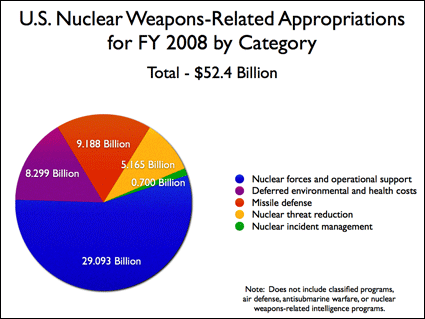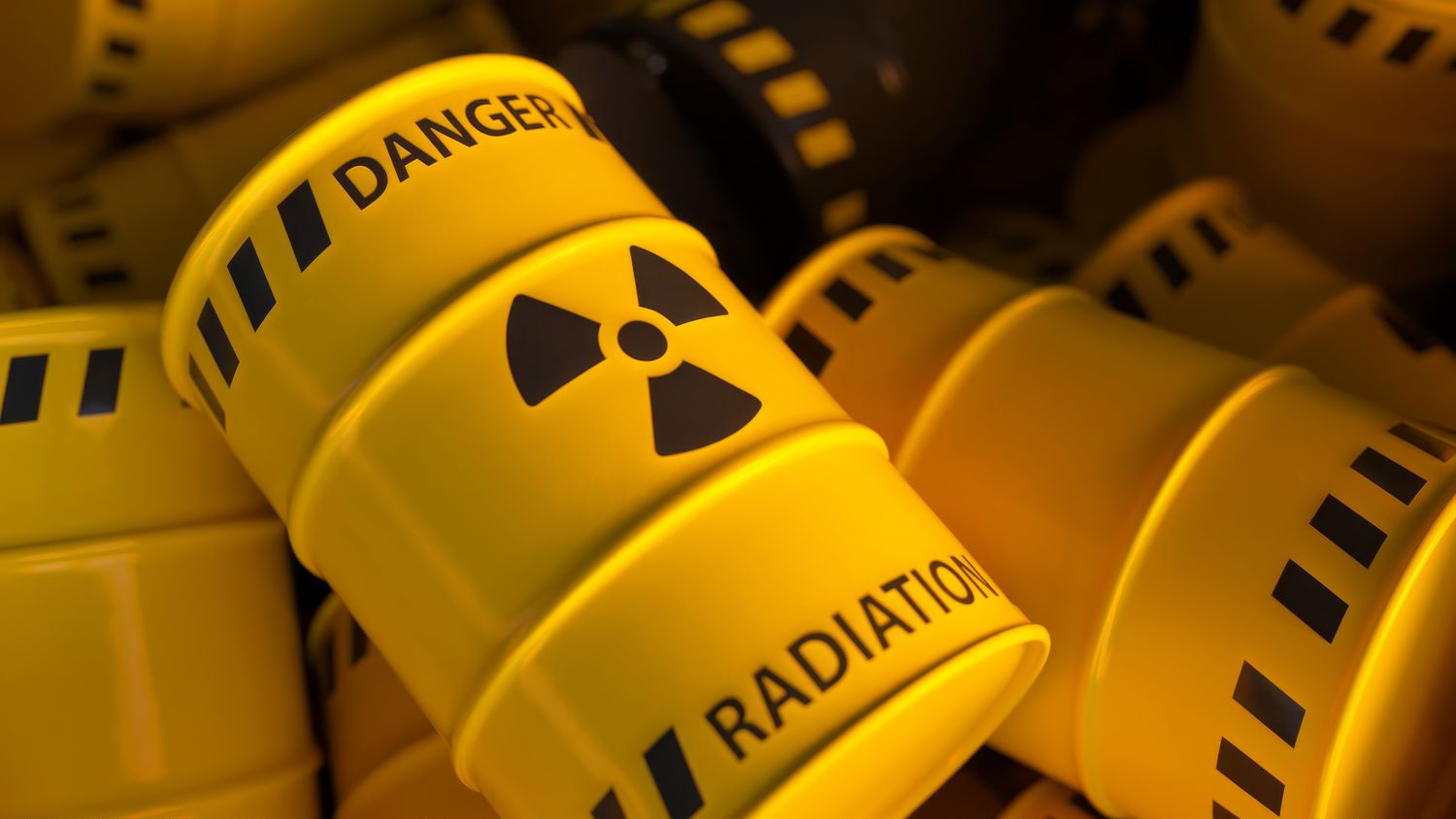The world is not, never has been, and never will be – in a static state. The North Korean 2009 nuclear test is further evidence. Since the global political landscape continuously shifts, nuclear policies must also adapt to best meet our security needs. We cannot assume that a nuclear policy which may have been right 50 years ago, is also right for today.
Our national security interests remain paramount when debating nuclear policy options. A second, but inseparable consideration, is the comparative costs of alternative nuclear policies. The rapid collapse of the Soviet Union showed the risks of prolonged economic imbalances. Far too many resources had been squandered on Cold War weaponry.
All nations, even the wealthiest, have financial limitations. In an era where economic power rivals military power for global influence, the wise policy strikes the correct balance between these two objectives. Both absorb resources and long term investments.
In 2008, the U.S. spent $52.4 billion on nuclear weapons programs and their delivery systems. In these days of billion-dollar corporate bailouts this may not sound like much, but it is. Especially when you consider the comparative bargain of alternative policies.

There is always an opportunity cost for every dollar spent. A dollar spent on nuclear weapons is a dollar not invested in our infrastructure, education system, or energy research – all investments which enhance economic power by fueling further growth.
Nowhere is this lost opportunity cost more apparent than within the Department of Energy (DOE) budget. Spending on nuclear weapons and weapons research in 2008 accounted for two-thirds (67%) of the entire DOE budget. Imagine if over the entire life of the DOE, the funds spent on nuclear weapons had instead been invested in energy technology research?
Energy independence is also vital to our national security. By moving in concert with all other nations toward a world free of nuclear weapons, tens of billions of dollars could be reallocated annually to energy research.
A reduced global role for nuclear weapons improves our security both by mitigating the likelihood that terrorists will obtain these weapons, and by simultaneously freeing up more dollars for critical energy research.
In a nuclear weapons free world, reduced spending on nuclear weapons can be done without weakening national security. Secretary of Defense Robert Gates recently slashed several weapon systems which offered marginal or no utility. He cut the F22 fighter jet program in part because this aircraft had flown no missions in the past 8 years, and in part because each F22 jet cost the U.S. taxpayer a whopping $143 million. No utility should always mean – no budget.
A nuclear weapons free world will require a more stringent international verification regime. There will need to be increased global investment in weapons and fissile materials monitoring to guard against cheating.
However, the expenses associated with weapons verification are miniscule compared with the costs of nuclear weapons. The International Atomic Energy Agency (IAEA) is the United Nations agency for nuclear nonproliferation and fissile material monitoring. The IAEA total annual operating budget was $156 million in 2007. Or just slightly more than a single cancelled F22 fighter jet.
The International Monitoring System (IMS) is designed to detect any nuclear test explosion of military significance. Through the IMS, we have access to sensitive data from over 300 monitoring stations scattered around the globe. There are now IMS stations deep within the borders of Russia, China, and even Iran. The IMS has an annual total operating budget of $110 million. The U.S. portion for this budget is a paltry $30 million.
The far lower costs of supporting a nuclear verification regime should be a considered as we reshape our nuclear policy for a new century.
Ronald Reagan captured both the security and economic quandary posed by nuclear weapons in his 1984 State of the Union. “A nuclear war cannot be won and can never be fought,” he said concerning the Soviet Union. “The only value of our two nations possessing nuclear weapons is to make sure that they are never used. But then would it not be better to do away with them entirely?”

